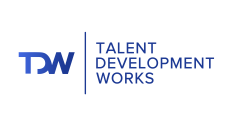Business success is greatly influenced by the expectations it has for its employees and the way it equips them to rise to the expectations.
What expectations do you have of your employees? How well are they equipped for their tasks now and in the future?
Many companies say that “our people are our most important asset” and then do nothing much about that.
Some limit Talent Development work to those on a management track. They do need it, but others influence productivity of the company and development effort with them pays great rewards.
Having a robust Talent Development program involves the entire organization; every employee is part of it. Creating such a system begins with knowing what you want and what you have.
Here are 10 ways to begin to look at your Talent Development and to make some improvements.
- Do you have a clear picture of what you intend that your organization will look like in 5 years? Can you describe the talent needed to get it there?
- Do employees describe their job in terms of tasks they do daily or in terms of their accomplishments?
- Can your employees describe their individual path for growth, learning and promotion to the next level? If not, either you or they are in the wrong place.
- Do employees at all levels freely offer new ideas and different perspectives on various aspects of the work they do? Everyone has a viewpoint. Encourage them to give voice to their ideas.
- Do you know your employee retention rate by various employee categories and by department? Is the future of the enterprise strengthened or weakened by their staying or leaving?
- Do you look inside for new hires? Hiring from within gives you someone who knows the culture and is a known quantity. When you do hire from outside do employees come to you or do you struggle to find them? How do you measure an applicant’s personal and technical strengths? Do candidates, whether hired or not, have a positive reaction to the hiring process? The hiring process reflects your company. Be sure it sends a message of openness, excellence, action, and future thinking.
- Do you hire people smarter than you? High performers work better with other high performers.
- Do you have a formal, flexible, and extended on boarding process that last 6-12 months and is led by great models?
- Do employees and managers embrace or avoid whatever performance management programs you use?
- Do the informal conversations among employees tend toward possibilities and growth or toward complaints and worries?
When you want to maximize the return on your employee dollars, we are there for you. Contact us:
www.talentdevelopmentworks.com
kip@talentdevelopmentworks.com
